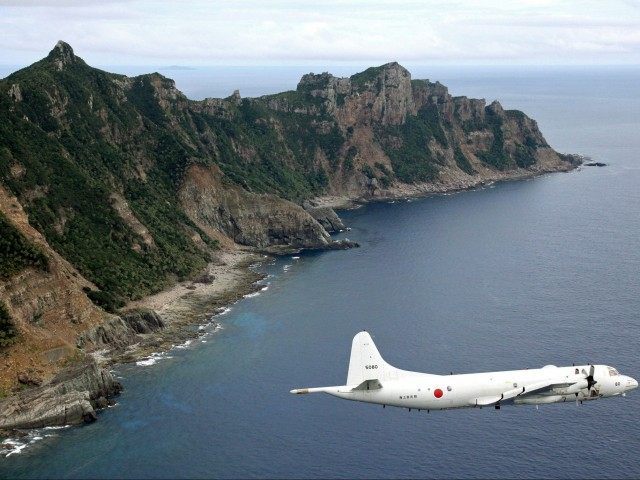Vice Foreign Minister Akitaka Saiki summoned China’s ambassador to Japan early Thursday morning to lodge a protest against the passage of a Chinese navy ship through the contiguous zone near the Senkaku Islands, a Japanese territory over which China claims sovereignty.
The Vice Foreign Minister reportedly called a 2 A.M. local time meeting with Chinese ambassador Cheng Yonghua to “express a serious concern” about the passage of a military vessel in the area unannounced, within 24 miles of the Senkakus, which China calls the Diaoyu Islands. In addition to lodging their complaint with China officially, the Japanese newspaper Asahi Shimbun reports that Japan “immediately set up a liaison room in the crisis management center of the prime minister’s office” to prepare for any further transgressions.
“We are worried that this action raises tensions to a higher level,” Reuters quotes Japan’s Chief Cabinet Secretary Yoshihide Suga as stating on Thursday morning. “Beijing’s action of sending a military ship for the first time would further escalate tensions unilaterally and we are gravely concerned about it.”
Gen Nakatani, Japan’s defense minister, said Thursday he believes there “is a possibility that China aimed to show an uncompromising stance to its people and foreign countries based on its own assertion on territorial rights.”
Japanese authorities noted that this was the first such passage of a Chinese naval ship in the contiguous zone, though China has sent numerous coast guard ships to navigate the area in the past. The ships did not pass through Japanese sovereign territory but were close enough to raise alarm in the context of China’s maritime belligerence in the past decade.
China has exerted its military strength in the South China Sea increasingly over the past two years, building military facilities on artificial reefs that lie in international waters. In the East China Sea, on the other hand, tensions have remained stable since 2013, when China escalated the situation by establishing an Air Defense Identification Zone (ADIZ) over the Senkaku Islands. The ADIZ remains widely ignored today, as enforcing it would require China to engage Japan militarily, triggering a response from a treaty-bound America to protect Japan.
Nonetheless, it has been a busy month in the East China Sea. Last week, a Chinese fighter jet intercepted an American aircraft over the East China Sea in a manner the Pentagon deemed “dangerous” — the fighter jet flew at a “high rate of speed as it closed in,” increasing the likelihood of a crash. United States Pacific Command has lodged a complaint “in appropriate diplomatic and military channels,” it said in a statement. In May, the Chinese government did the same in the South China Sea, and the United States once again protested. In February, the Chinese government sent an advance missile frigate into the disputed waters of the East China Sea; following that excursion, the party of Prime Minister Shinzo Abe has called for Japan to bring China to international court over its claim that the Senkaku Islands are Chinese territory.
The Japanese defense ministry vowed to work with the United States following the transgression early Thursday. The Chinese Foreign Ministry, meanwhile, denied the Chinese ship had done anything wrong. “Chinese naval ships sailing through waters our country has jurisdiction over is reasonable and legal. No other country has the right to make thoughtless remarks about this,” the Chinese Defense Ministry said in a statement to Reuters.
China’s growing presence in the East China Sea has turned public opinion in Japan towards closer American cooperation. A recently released poll conducted in October 2015 in partnership with the Asahi Shimbun found that “most Japanese have a strong desire for a continued close relationship with the United States.” 40 percent of Japanese, the highest percentage, said they wanted their relationship with the United States to remain as close as it is now. Even more telling were poll responses on questions about China. An overwhelming 71 percent of Japanese respondents said China does either “much more harm than good” or “somewhat more harm than good” to Asia in general, with 33 percent choosing the more severe option.

COMMENTS
Please let us know if you're having issues with commenting.